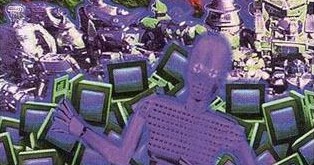
| last update 10.11.2025 21:34 | |||||
|
| Top Runners' Quarterly |
| Frisky's Corner |
| Neal's Last Words |
Sharpening Your Sealed-Deck Skillsby Tobin Lopes, 1998 World Champion
Netrunner is a game without limits. You can do just about anything you want, which includes building phenomenally abusive decks that will win 99% of the time. But if you play only those decks, the game becomes stale and unexciting. One of the ways that Netrunner players keep the creative juices flowing is by participating in sealed-deck tournaments and leagues. The sealed environment is beneficial for several reasons. It spurs card sales, which hopefully means the release of further expansions. As well, it allows newer players to play with experienced players on a similar level. Sealed-deck leagues are another way to introduce newer players to the game, and league play has kept the game interesting and challenging in many City Grids. Fort Collins keeps the Netrunner temperature high by holding summer sealed-deck leagues. Every summer for the last three years, Fort Collins players have gotten together and thought up a sealed-deck environment to dabble in. Last year nine of us played in an Arena style league, each using a sealed starter and two Proteus boosters. Everyone played each other three times. The format of sealed-deck play isn't important, though. What is important is sharpening your skills.
Corporation Hints: Node choices are also very important. In a sealed environment the Runner is often in a money crunch. Thus it benefits us to install nodes that cost quite a bit to trash. This lures the Runner into making runs and spending eurobucks to get through the ice only to find-an advertisement! Upgrades also help, although we should spend time and money only on upgrades that will be useful in such a limited environment. With ice the choice is pretty simple: diversity! This forces the Runner to equip herself with all types of icebreakers. The better balance we strike between the three types of ice, the better. Since sentries outnumber code gates or walls, you'll probably play with a few more sentries than the others. Try to keep the mix pretty even though. The VP for Security suggests using not less than 20 ice in a 45-card deck. Pay special attention to the rez cost versus the break cost for some of the more common ice; the closer these numbers, the better for us. For instance, Fire Wall costs Corrosion, Jackhammer, and Wrecking Ball 4 bits to break while costing only 5 bits to rez. One of the top three sentries is Neural Blade, which costs many 'breakers 4 bits and up to crack. Lastly, it's important to decide on our default action. If we get to the point where we don't have specific plan of action, do we draw cards or gain bits? This requires knowing our deck's shortcomings: is it short on bit gainers or is there a specialty card we rely on? Keep that default action in mind while playing the game. Usually we will have to cut a few cards from our initial selection to get to a playable deck size.
Runner Hints: Program choice is very important. I tend to use three sentry breakers and two each of wall and code gate breakers, because I know there are more sentries in the world than the others. Also, I've gotten into serious trouble after encountering some of those nasty sentries! One or two utility breakers could also be useful if they are a part of your pool. When it comes to money cards, what can I say - use them! But even if you don't have a filter for the newsgroups or a Broker to invest with, you've got to get money one way or another. Often this means spending actions gaining bits instead of drawing cards. Hardware is important-to a point. MU is always useful. Look at your program selection and decide whether you require extra MU after installing your four best programs. Add in enough to cover your needs and don't bother with any more. One more thing: tag avoidance! Take precautions by using some (maybe two cards) but not a lot. You can bet that the Corp's resources are limited too. During the endgame, as with the Corp, your card availability will determine your default action. When you're waiting on a slow corporate strategy or building for a major attack, be disciplined. Don't draw a card unless you have a specific one that you want to see. Often in the endgame a bit draw is better than a card. You'll generally find you have to fill up a Runner deck to reach the required 45-card minimum. After every game you must do an objective review of your play style. What did you learn about your deck? What was your constraint? Was it cards? Bits? Do you need to rethink your default action? Did you underestimate your opponent? Could you have done something different on your last few turns? If you learn something from every game, your play will improve. And you might find people knocking on your door to challenge the Champ! These are some things that Fort Collins players have learned with the various leagues we've played. The leagues also spur us to discussion about certain tactics to take and strategies to employ. You can only be as strong as your best opponent. Challenge yourself and others and you will all become better players in the process. Good luck!
|
|
